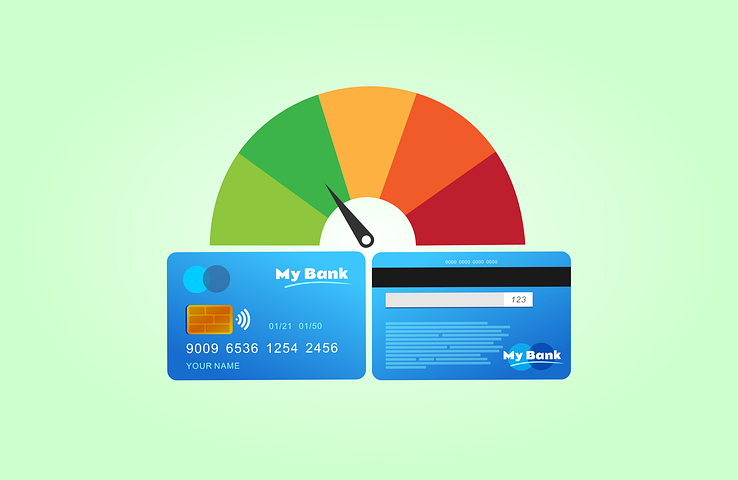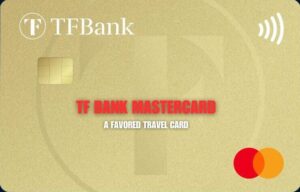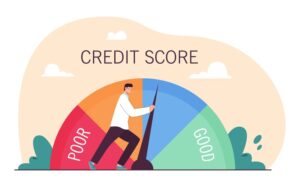How to Start Building Credit From Scratch

You don’t need to be a money management expert of any kind to know that building and maintaining good credit is an extremely important part of your financial life. We’ve all seen the plethora of TV commercials and other advertisements telling you how you can check and monitor your credit score. Or perhaps you’ve seen advertisements reminding us how hard it is to buy certain things, such as cars, when you have bad credit. How many times have you seen “no credit check” cited as a benefit of working with a certain company? But with how much emphasis there is on the importance of having good credit, what do you do if you have no credit history?
Not having a credit history is more common than you might realize. In a 2016 report from the Consumer Financial Protection Bureau, they estimated that approximately 26 million people in the United States do not have a credit history with any of the three major credit reporting companies. Beyond that, they estimated there are an additional 19 million people considered “credit unscorable,” meaning their credit history was either very thin or they lacked a recent credit history. Young adults tend to be the most likely to fall into either of these categories, but people may also lack a credit history if they are recent immigrants or if a stay-at-home parent had been using credit in their spouse/partner’s name for a long time.
When a person has no credit history or falls into the “credit unscorable” category, it can cause many different problems, ranging from having a difficult time renting an apartment and getting a cell phone to not being able to get good terms on auto loans and mortgages. The catch-22 with credit is that you need credit to get credit. Loans and credit cards with the most favorable terms go to people who have established records of making payments on time and those who either don’t have a credit history or have a less-than-ideal credit score will have a harder time getting approved or will only be able to get less favorable terms on loans.
The good news is that many financial experts believe that having little-to-no credit history is preferable to having a poor credit score because, while neither situation is great, it can be easier to build credit from scratch than to repair bad credit. Here are some options to help you get started.
Take Out a Loan To Start Building Credit
If you don’t have a credit history, taking out certain types of loans can help you start building a reputation for yourself. We’re not talking about anything big like a mortgage or auto loan here. Specifically, secured loans or credit builder loans can both be great options for people who are just starting out with credit.
With a secured loan, you deposit a set amount of money into an account and the bank or credit union then issues you a loan for that amount. The amount of your deposit then works as collateral for the loan. Credit builder loans, on the other hand, do not require you to put any money into them upfront. Credit builder loans work by entering into an agreement with a bank or credit union to pay them a certain amount of money each month and they put your payments into a savings account for you. Once the loan is paid off, the money is returned to you.
Both credit builder loans and secured loans do require you to pay interest, but they do tend to be loans with low interest rates.
While we’re on the subject of loans, if you need something like a personal or auto loan but your lack of a credit history means you can’t get approved on your own, one option is to apply for the loan with another person acting as a co-signer. When a co-signer is involved, the co-signer agrees to be legally responsible for payments if the primary borrower doesn’t make them, which may make it more likely you’ll get approved. However, keep in mind that if you miss payments for any reason and the co-signer has to step in, this could mean your relationship with a family member, significant other, or friend could become very strained, so be extremely cautious about getting a co-signer involved.
Get a Credit Cards For Building Credits– And Use It
Young adults are the demographic most likely to lack a credit history and they’re also very likely to be inundated with offers for credit cards. But getting that first credit card shouldn’t be a matter of taking the first offer that comes along or choosing the one offering the most bells and whistles. Rewards like cash back and points are great, but they shouldn’t be a main deciding factor. Instead, it’s more important to focus on things like annual fees, late payment fees, and over-the-limit fees.
When you’re just starting out with credit, it can also be a good idea to look for cards with low credit limits. If you’re worried that having a credit card could tempt you to overspend, low-limit cards can be an ideal solution since they typically have limits ranging from $500-$2,500, so you won’t be able to get too deeply in debt with them.
Secured credit cards are another excellent option to consider since they allow you to build credit without the lender assuming any risk. They’re specifically intended to help people to build their credit up enough to be able to qualify for an unsecured card. All you do is put down a deposit and the amount of that deposit establishes your credit line. For example, if you deposit $1,000, you have a secured card with a $1,000 credit limit. Then you use your card as you would any other card and if you miss a payment, the lender simply uses the deposit to cover their loss. If you decide to get a secured credit card, make sure it will report your history to all three of the major credit bureaus.
Once you have a card, use it to make small purchases that can easily be paid off in full at the end of the month. Think ordinary, day-to-day expenses like putting gas in your car or buying groceries, not big vacations or expensive concert tickets. Paying off those small balances every month can go a long way in helping you build a strong credit history. Genisys Credit Union notes that this is an ideal way to build credit since it’s an easy way to prove to lenders that you can responsibly manage the credit available to you and because payment history is a large part of your credit score.
Authorized Users
Another option that may be particularly good for young adults looking to build credit is to become an authorized user on a parent’s (or other family member’s) credit card if they have a card with a company who reports authorized users to the credit bureaus. Not all credit card companies report authorized users to the credit bureaus, so it’s important to check first.
If a company does report authorized users to credit bureaus and you’d like to go this route, you’ll be given a card in your own name and your activity with that card will be reflected in your credit history. However, a big risk in becoming an authorized user on someone else’s credit card means that another person’s behavior may impact your credit history. Ideally, you want to become an authorized user on the account of someone who has a long, established history of using credit responsibly. In that situation, their good use of credit may benefit you. However, if the primary cardholder misses some payments, their missed payments may have a negative effect on you.
Making Routine Payments Helps Building Credit
We all have our recurring expenses to deal with each month, like rent, cell phone bills, and utilities. But if you’re trying to build credit, those types of expenses could work to your advantage.
Many financial institutions have credit building tools available that can help you build credit just by making these kinds of monthly payments. Experian Boost, Rental Kharma, LevelCredit, and eCredable are just a few examples. These services work by allowing users to link their accounts with their bank or utility accounts so that qualified payments can be reported to credit bureaus. Of course, details will vary from program to program, so be sure to read the fine print carefully, especially to see if payments are reported to all three credit bureaus or just one or two. But considering that you may even be able to get credit for paying for things like Netflix and Hulu every month, it can be something worth looking into.
Options for Immigrants
If you don’t have a credit history because you recently moved to the United States, many of the previously discussed options can help, but there’s also a chance that you could get some help from your previous banker. If you have a history with a bank or credit card company that does business internationally, they may be able to help you get a credit card in the United States so that you can start building credit here. Some companies, such as Nova Credit, also offer services specifically designed to help people who are moving to other countries use their credit history in one country to establish credit and access financial services in another.
Best of luck to you in your credit building journey!
Image Credit: Anete Lusina / Pexels
Author Bio: Angela is a freelance writer based in the Detroit area. She writes about a wide range of topics, ranging from film to design and small businesses. When not writing, she enjoys hiking, gardening, and antiquing.

Pranab Bhandari is an Editor of the Financial Blog “Financebuzz”. Apart from writing informative financial articles for his blog, he is a regular contributor to many national and international publications namely Tweak Your Biz, Growth Rocks ETC.







